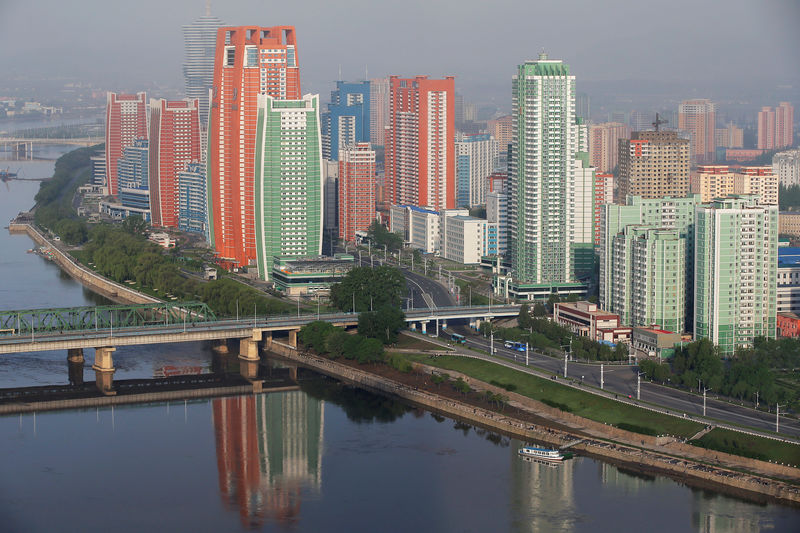(Bloomberg) -- Kim Jong Un acknowledged that North Korea’s development goals have been “seriously delayed,” in the latest sign that sanctions, flooding and the coronavirus have dealt a triple blow to the country’s already anemic economy.
Kim told the first gathering of the ruling Workers’ Party of Korea’s Central Committee in eight months that the country “faced unexpected and inevitable challenges in various aspects,” state media said Thursday. “Planned attainment of the goals for improving the national economy have been seriously delayed and the people’s living standard has not been improved remarkably,” Kim said, according to the Korean Central News Agency.
The statement was the latest in a series by Kim complaining about the pace of key policy goals, a striking admission for a state built on the infallibility of Kim family rule. In recent months, Kim has lashed out at cadres over what he saw as lax virus management and blasted the people responsible constructing his showcase Pyongyang General Hospital, saying they were flouting party policies and being “careless” with spending.
The North Korean leader also pledged to unveil a new five-year economic development plan at a ruling party congress to be held in January, without elaborating. The last five-year plan was unveiled in 2016.
Key party meetings often lead to a shake-up of cadres, which could mean new powers for prominent officials such as his sister, Kim Yo Jong, and a purge of others. At a Politburo meeting last week, Kim sacked the premier he appointed a little more than a year ago, removed the southern border city of Kaesong from virus lockdown and said he would not accept foreign food aid because of the risk posed by the pandemic.
While state media made no mention of the U.S.-led sanctions regime on the country, Pyongyang has repeatedly lashed out at the campaign. In December, Kim similarly told the Central Committee that “the conditions of the national economy have not turned better,” adding “the role of the state as the organizer of the economic work has not been enhanced.”
Kim is facing difficulties on various fronts, and a reported health scare earlier this year raised questions about succession. His nuclear discussions with President Donald Trump have ground to a halt without him winning any sanctions relief, and the U.S. and South Korea this week kicked off joint military drills.
“Unless there is a major change -- such as pushing for economic reform or improving relations with South Korea, China and/or Russia -- it would be difficult for North Korea to deliver the economic prosperity it vowed,” said Yang Moo-jin, a professor at the University of North Korean Studies in Seoul who has advised the South Korean government over the years.
The economy was already under pressure from his decision to shut borders in January due to the coronavirus, which slammed the brakes on its minuscule legal trade. This year, the troubles could send the economy into its biggest contraction since 1997, according to Fitch Solutions.
Torrential rains that hit his state this summer have wiped out farmland, increasing food insecurity in the country where the United Nations World Food Program says about 40% of the population is undernourished.
North Korea has boasted that it doesn’t have any confirmed cases of Covid-19, a claim doubted by U.S. and Japanese officials.
©2020 Bloomberg L.P.
